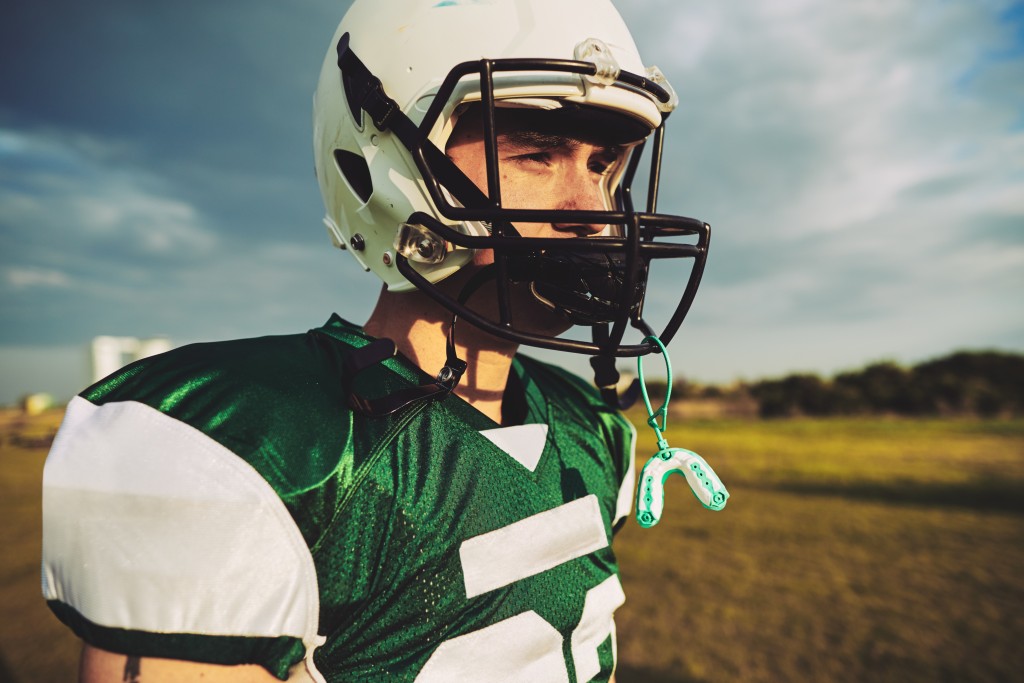Disclaimer: This website provides health information for educational purposes only and is not a substitute for professional medical advice, diagnosis, or treatment. Always seek the guidance of a qualified healthcare provider with any questions you may have.
When it comes to sports injuries, football ranks somewhere in the top. High school, college, and even professional athletes have had their careers shortened — or even ended — by injuries. Injuries may be almost impossible to avoid. However, there are steps you can take to at least minimize your chances of getting injured.
Gear Up
If you’ve ever seen a veteran rugby player, you’ll know the importance of safety gear. Football is one of the most punishing contact sports as players clash head-on at full speed. You’re issued protective equipment for a reason, and it is essential that you wear them every time you take the field. Never take off your helmet — even if you’re playing a practice game. Though it might not totally protect you from concussions, your helmet prevents your head from getting injured after a particularly strong takedown. Wear a proper football mouthguard, preferably one that’s strapped to your helmet. A strong impact can quickly knock your mouthguard out of your mouth. You don’t want to delay the game as you go about searching for it. If you do play without your mouthguard, know that you’ll be risking those pearly whites.
Stay Fit
Football requires you to be in top shape — and that includes the off-season. Maintain a moderately strict training regimen that includes strength training, cardio, and flexibility training. Your coach will be more than happy to give you a proper training program, but you’ll need a bit of discipline to stick to it. Just remember, if you start the season in top form, then your chances of getting injured drops significantly.
Prime Your Body

Cold muscles are more prone to injury, so take a few (3-5) minutes to warm up. You can do a bit of jogging, jumping jacks, or even just a quick stroll. Stretching is not a warm up. Serious stretches before physical activity increase your risk of injury, so try to keep your stretches light before taking the field. Part of priming your body also involves steeling your mind; sharp focus allows your body to perform better.
Cool Down
Once your practice session or match is over, you can finally do some serious stretching. Stretching rids your muscles of the lactic acid that built up over that few hours of physical exertion. It also helps in relaxing your muscles, preventing them from tightening up. Of course, if you want to cool down literally, you can do so with an ice bath. Ice baths gained prominence during the 2012 and 2016 Olympics as prominent athletes included it in their recovery regimen. Ice baths reducae the soreness of your muscles while also getting rid of lactic acid and jumpstarting the healing process. The water doesn’t need to be ice-cold, just 60-75 degrees is fine, and 5-10 minutes of soaking should be enough.
Overall, every contact sport involves the possibility of injury, but you can take specific measures to make sure your body can take the punishment and still forge on uninjured.




